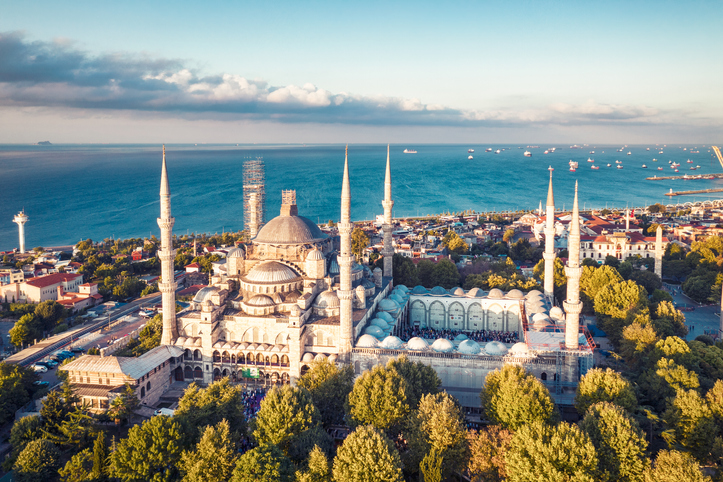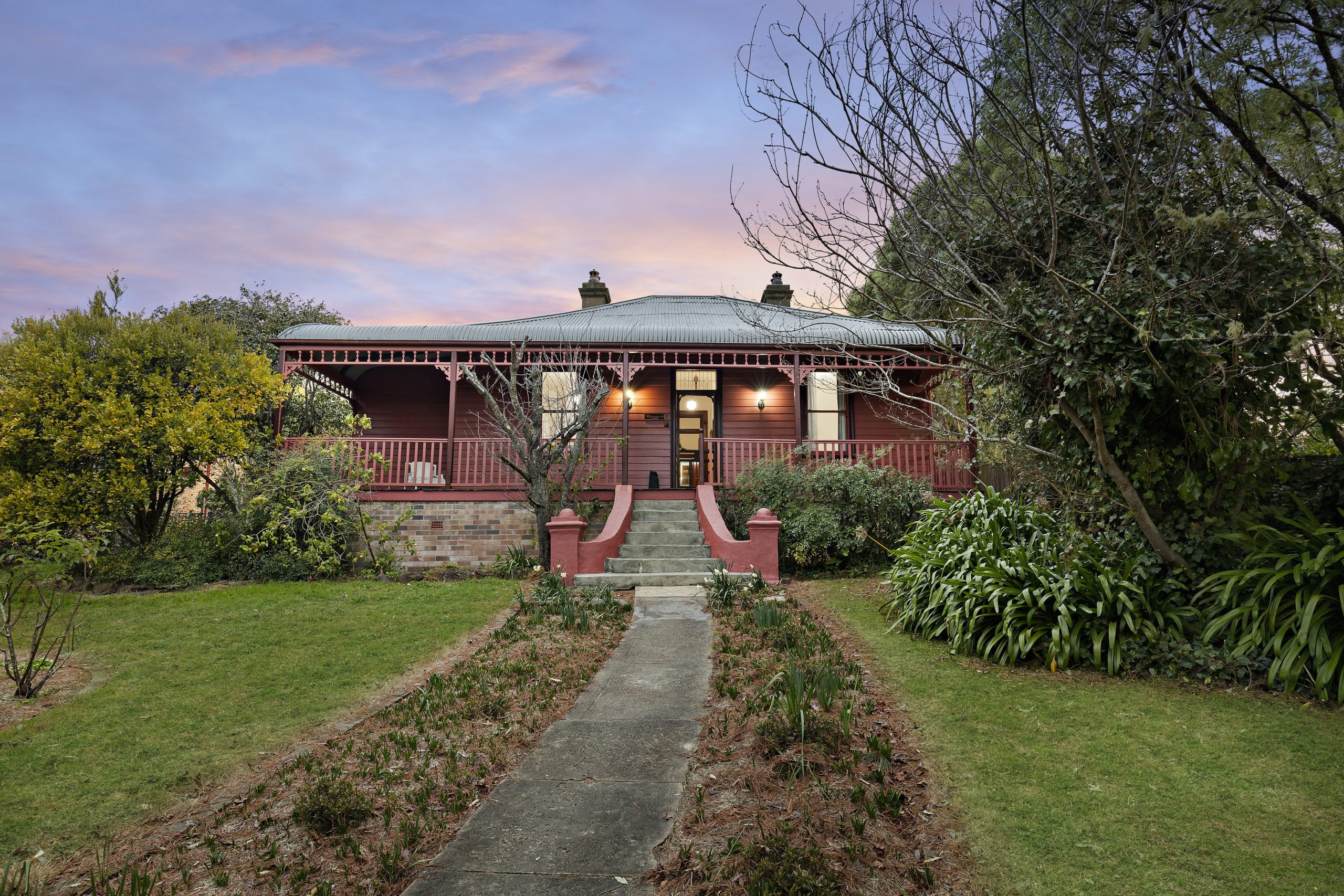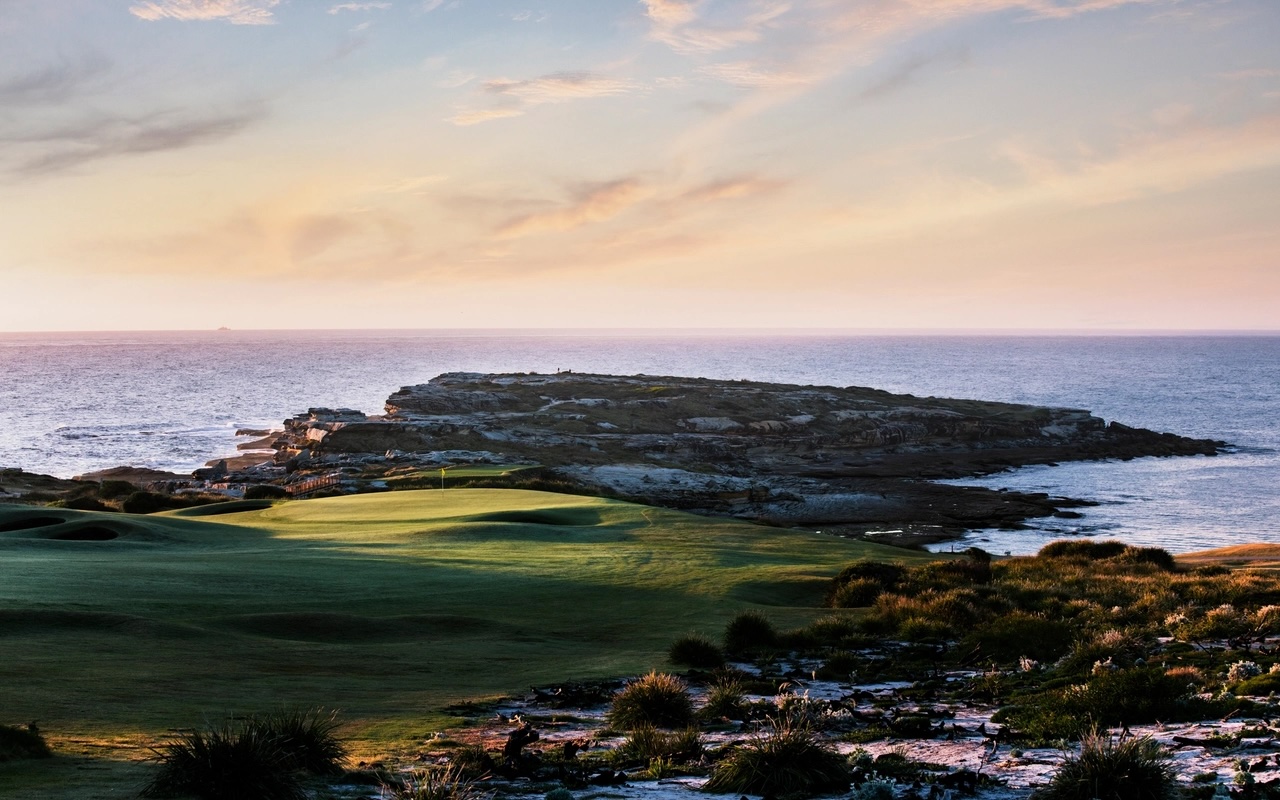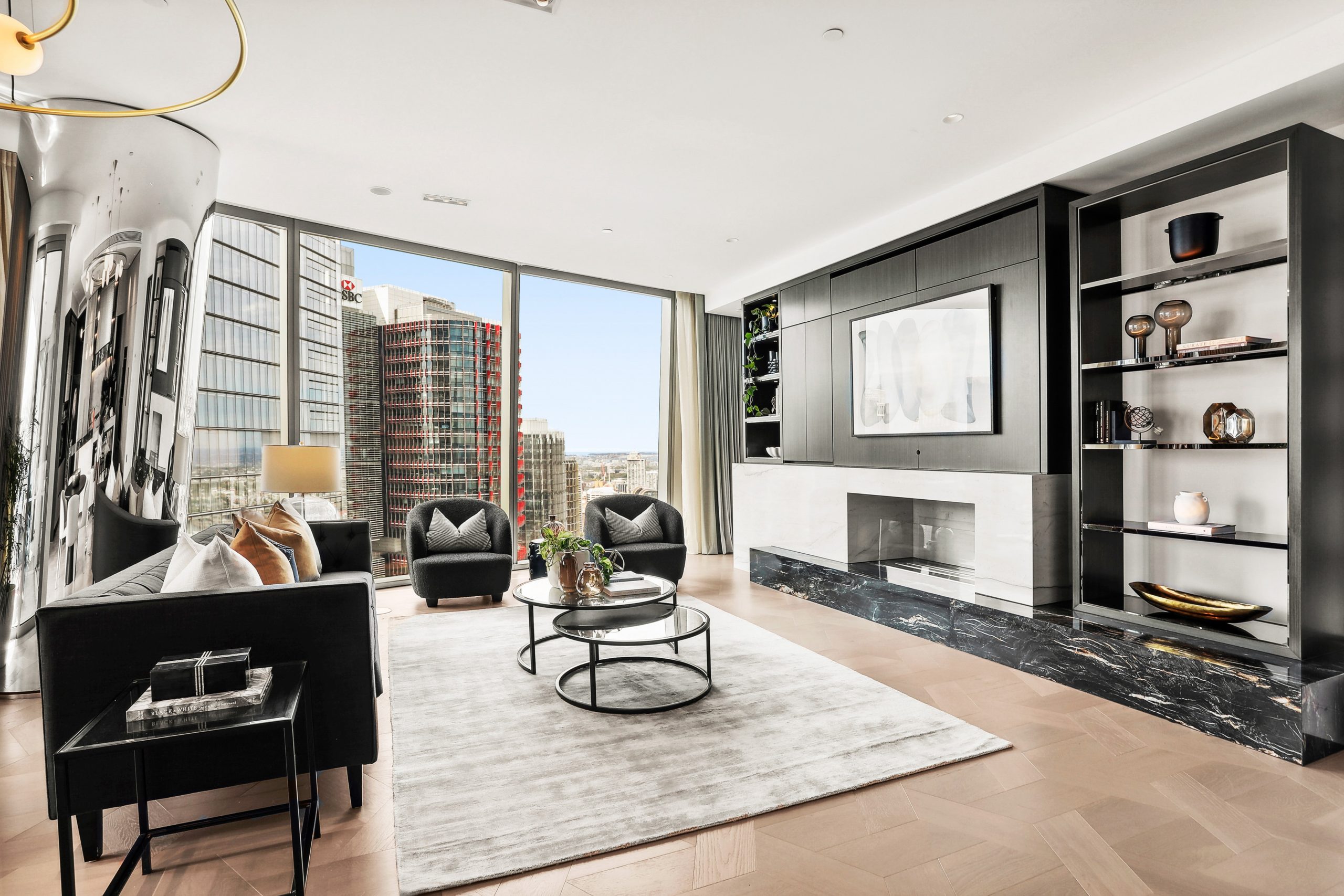What It’s Like to Retire in Istanbul
After living for 25 years in New York, a couple moved to Turkey. Despite some challenges, they are glad they did.
In 1979, my wife and I married in Detroit and immediately moved to New York City. That was our home for 25 years—until we retired and later moved to Istanbul in 2004.
Why do we live in Turkey? Turks themselves frequently ask us, often with an air of incredulity.
Even as a young child I was interested in history. It became my dream to live close to the centres of the Ancient World. I love that the district where we now live, on the Asian side of the Bosporus, across from Constantine’s acropolis, was once known as Chalcedon. The town appears on the 13th-century Mappa Mundi, whose reproduction hangs on our office wall.
But most important, we have found a sense of community here that seems increasingly rare in big cities of the West. In our neighbourhood, Moda, we walk almost every day—to our bakery, butcher and fruit-and-vegetable markets, to our restaurants and bank, doctors and barbers—all places where we are known and greeted. People stop us to say hello.
The neighbourhood is expensive by local standards, especially for housing. Our apartment cost $500,000 years ago, and we have spent $100,000 more on changes and renovations. Real-estate agents tell us that today we could ask $1.5 million if we were to sell. A monthly fee of less than $300 covers our heating, maintenance of the common areas, gardening, a large outdoor swimming pool and the salary and payroll taxes of the building’s live-in super.
Our large living-room windows look out on the Sea of Marmara and the western sky. This view is the main reason we bought our apartment. Often, cruise ships glide past, or a supertanker heading for the Black Sea. In the distance we can see the Hagia Sophia, a mighty edifice in both size and history. Built in the sixth century as an Orthodox cathedral, it later became a mosque, then a museum, only to become a mosque again in 2020.
We no longer own a car. If we can’t walk to it, there are taxis and other forms of public transportation. Istanbul’s funky street life is improvised, hectic and refreshingly unregulated. We love it and miss it when we travel elsewhere.
It’s a short walk along the seaside to the ferry that takes us to the European side of the city in 20 minutes. On the boat, vendors pass through with tea and juices. Where we disembark, more vendors sell roasted chestnuts, mussels with savoury stuffing, roast corn, and fish sandwiches. Old men sell lottery tickets, and fortunetellers use live rabbits to select slips of paper of the kind found in fortune cookies.
We didn’t choose Turkey seeking an inexpensive lifestyle, but it is what we were lucky to get. Because our income is in dollars, the plunging value of the Turkish lira has worked in our favour despite high inflation. The two of us can have a full meal without alcohol in a fine restaurant for about $25. Turkish cuisine is good and plentiful in our neighbourhood restaurants, but Chinese, Japanese and Italian dishes have become options, too.
It has been relatively easy to make friends with Turks and fellow expats. We have a social life that is easy and rewarding. Many of our friends are younger than us and are a great help at times—particularly in dealing with government bureaucracy.
To live as foreigners in Turkey requires a residence permit that the government renews every two years. It’s a Byzantine process—we can truly say that here—that is never the same twice and can become fraught with tension as we try to figure out and obtain the changing documentation required. At times like this, it is good to have a Turkish friend to help us.
We exercise at our local gym, where I pump iron three mornings a week and my wife, Kay, does Pilates. Healthcare has become a large issue as we’ve grown older. For some years I had private insurance equivalent to what I would have had in the U.S. Although Kay, who is eight years younger than I am, remains insured through the same company, that insurer cancelled me when I turned 75. Since then, I have paid my healthcare costs in a private hospital out of pocket. The wonder is that I’ve gotten first-class healthcare, including an important operation, for a cost we could easily afford. I’ll add that Istanbul’s private hospitals are very modern, comfortable and easy to navigate.
We feel safe here. It is a comforting thing to be able to walk through our neighbourhood, even at night, without fear. The city historically has been subject to destructive earthquakes, such as those that recently ravaged parts of southeastern Turkey and Syria. But, so far, we’ve experienced no tremors of any consequence.
The winter here is rainy and cold, but it rarely freezes. Spring and autumn are long, and there is plenty of heat in July and August.
There are, to be sure, some challenges.
Although public transportation is plentiful, it can be maddening as well. The system lacks the same convenience one finds in a city like New York.
Turkish isn’t a simple language to learn—at least for us. Partly this is the fault of our ageing brains and hearing. But I also find that Turks are prone to speak quickly.
As for shopping, while international products are more available than before, our choices are still limited. Also, many products are of a lesser quality than what we were used to in the U.S.
We have to manage our financial affairs by long distance, and this can be frustrating at times.
Finally, while the internet and email are great, we miss not seeing our friends and family in the U.S. more often.
On balance, though, we are more than satisfied with our lives here. Our travels have taken us to many countries, and we know that no place is perfect.
Retirement gives one the opportunity to discern the themes and through-lines of our lives. As I reflect on the key choices I’ve made in life, I realise that what I’ve chosen most often is a sense of freedom and a variety of experience. Our expatriate life is one of those choices.
 Copyright 2020, Dow Jones & Company, Inc. All Rights Reserved Worldwide. LEARN MORE
Copyright 2020, Dow Jones & Company, Inc. All Rights Reserved Worldwide. LEARN MORE
This stylish family home combines a classic palette and finishes with a flexible floorplan
Just 55 minutes from Sydney, make this your creative getaway located in the majestic Hawkesbury region.
Continued stagflation and cost of living pressures are causing couples to think twice about starting a family, new data has revealed, with long term impacts expected
Australia is in the midst of a ‘baby recession’ with preliminary estimates showing the number of births in 2023 fell by more than four percent to the lowest level since 2006, according to KPMG. The consultancy firm says this reflects the impact of cost-of-living pressures on the feasibility of younger Australians starting a family.
KPMG estimates that 289,100 babies were born in 2023. This compares to 300,684 babies in 2022 and 309,996 in 2021, according to the Australian Bureau of Statistics (ABS). KPMG urban economist Terry Rawnsley said weak economic growth often leads to a reduced number of births. In 2023, ABS data shows gross domestic product (GDP) fell to 1.5 percent. Despite the population growing by 2.5 percent in 2023, GDP on a per capita basis went into negative territory, down one percent over the 12 months.
“Birth rates provide insight into long-term population growth as well as the current confidence of Australian families,” said Mr Rawnsley. “We haven’t seen such a sharp drop in births in Australia since the period of economic stagflation in the 1970s, which coincided with the initial widespread adoption of the contraceptive pill.”
Mr Rawnsley said many Australian couples delayed starting a family while the pandemic played out in 2020. The number of births fell from 305,832 in 2019 to 294,369 in 2020. Then in 2021, strong employment and vast amounts of stimulus money, along with high household savings due to lockdowns, gave couples better financial means to have a baby. This led to a rebound in births.
However, the re-opening of the global economy in 2022 led to soaring inflation. By the start of 2023, the Australian consumer price index (CPI) had risen to its highest level since 1990 at 7.8 percent per annum. By that stage, the Reserve Bank had already commenced an aggressive rate-hiking strategy to fight inflation and had raised the cash rate every month between May and December 2022.
Five more rate hikes during 2023 put further pressure on couples with mortgages and put the brakes on family formation. “This combination of the pandemic and rapid economic changes explains the spike and subsequent sharp decline in birth rates we have observed over the past four years,” Mr Rawnsley said.
The impact of high costs of living on couples’ decision to have a baby is highlighted in births data for the capital cities. KPMG estimates there were 60,860 births in Sydney in 2023, down 8.6 percent from 2019. There were 56,270 births in Melbourne, down 7.3 percent. In Perth, there were 25,020 births, down 6 percent, while in Brisbane there were 30,250 births, down 4.3 percent. Canberra was the only capital city where there was no fall in the number of births in 2023 compared to 2019.
“CPI growth in Canberra has been slightly subdued compared to that in other major cities, and the economic outlook has remained strong,” Mr Rawnsley said. “This means families have not been hurting as much as those in other capital cities, and in turn, we’ve seen a stabilisation of births in the ACT.”
This stylish family home combines a classic palette and finishes with a flexible floorplan
Just 55 minutes from Sydney, make this your creative getaway located in the majestic Hawkesbury region.






















